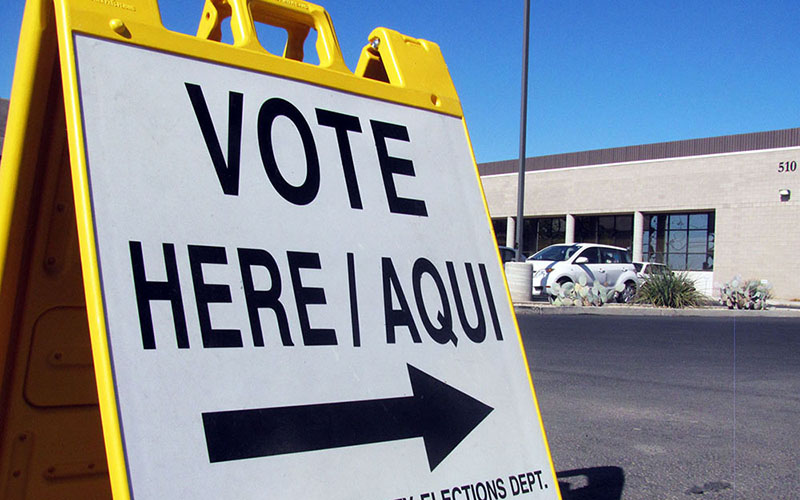WASHINGTON — Voting rights advocates and Arizona Democrats on Wednesday denounced a bill that would remove voters from the Permanent Early Voting List, calling it an attempt to disenfranchise up to 150,000 voters, particularly those of color.
SB 1485, which passed the House Tuesday and is expected to win final approval in the Senate, would remove people who fail to vote in two consecutive election cycles from the list of those who automatically get a ballot by mail. Under current law, voters are only removed from the list if they request to be dropped or their registration is canceled.
But critics said Wednesday Arizona’s long history with mail-in voting proves the system works. SB 1485 aims to solve a problem that doesn’t exist, they said.
“There is really no valid reason to change these systems unless you’re really looking to make it harder for people to vote,” said Secretary of State Katie Hobbs. “There really is no reason to turn back the clock on our successful vote-by-mail system.”
Hobbs was speaking at a news conference called to drum up support for HR 1, a sweeping elections bill in Congress that would set federal regulations and standards for elections. But the event quickly turned toward the GOP-backed bills in the state legislature.
“This is not about election security. This is not about election integrity. This is about trying to game the system,” said state Rep. Reginald Bolding Jr., D-Phoenix, the House Minority Leader.
Republican legislators did not respond to requests for comment Wednesday, but in remarks earlier this week they attacked both Democrats and the media for what they called unjustified criticism of their bills.
“We’re not going to back down from something that’s reasonable, that is common sense and protects the integrity of our elections,” said Sen. Michelle Ugenti-Rita, R-Scottsdale, during a press conference Monday.

More than 300 elections bills have been filed this year in state legislatures around the country, according to the Brennan Center, which said the 23 bills in Arizona was third-highest in the country. (File photo by Natasha Khan/Cronkite News)
A report by the Brennan Center for Justice at New York University said 361 bills that would restrict voting rights were introduced in state legislatures, with Arizona having the third-highest number of such bills, at 23.
Only five of those bills appear to be making their way through the legislature, however, including SB 1485 and SB 1713, which would require voters to include proof of a second form of identification, such as a driver’s license, with their mail-in ballot.
Both Ugenti-Rita, who sponsored SB 1485, and Sen. J.D. Mesnard, R-Chandler, who sponsored SB 1713, painted their proposals as commonsense election integrity measures.
Mesnard said the original version of his bill “replicated nearly word for word the exact process used by those who vote at the polls and apply it to those who vote by mail.”
“If it was good enough for those voting in person it should be good enough for those voting by mail,” he said Monday.
Ugenti-Rita said the voter removal process in her bill is similar to those in California and New Mexico.
“Where’s the outrage, why aren’t you calling them a bunch of names in New Mexico?” she asked.
Under her bill, voters who did not vote in two consecutive election cycles would get a notice that they were in danger of being dropped from the early-voting list, and would be removed if they did not respond within 90 days.
But Hobbs pointed out Wednesday that the early voting list has been in place since 2007 and is widely used by voters of both parties in the state: Nearly 2.5 million people in Arizona voted by mail in the historic 2020 election, according to data from Hobbs’ office.
The 2020 election also saw Arizona going to a Democratic presidential candidate for the first time since President Bill Clinton 1996 re-election, and sending two Democrats to the Senate for the first time since the 1950s.
Bolding said the Arizona election bills are part of the wider GOP effort to restrict voting rights around the country.
“What we’re seeing here in Arizona has been a piecemeal approach to limiting democracy,” Bolding said.
He said both Mesnard’s and Ugenti-Rita’s bills would disproportionately affect marginalized groups.
“It will directly impact our seniors, it will impact our independent voters, Native Americans, Black, brown and low-income people from having this option,” Bolding said.

